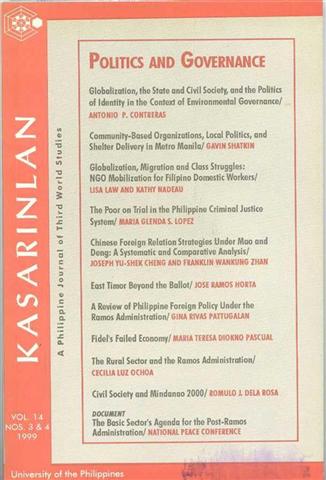The Poor on Trial in the Philippine Criminal Justice System
Abstract
Law is an interpretative profession as it is vested with the legitimate authority to interpret the rules governing the structure and processes of societal relations. As societal facts are accurately interpreted through the legal profession, justice in society is thereby promoted, if not enhanced. However, rarely are facts accurately interpreted, for the accuracy of interpretation is largely dependent on the quality of the case that is constructed by the legal practitioner. Indeed, the quality of case building is largely constrained by, or has a direct relation to the economic class to which the litigants belong. Thus, the rich have far greater chances than the poor have of obtaining better-constructed cases. Some of the factors that negatively affect the building of cases for the pauper litigants are: difficulty of locating witnesses, inability to communicate with their lawyers and lack of knowledge of the law, heavy workload of the public attorneys, and absence of investigators and legal researchers at the Public Attorney's Office.
Published
2009-07-28
How to Cite
LOPEZ, Maria Glenda.
The Poor on Trial in the Philippine Criminal Justice System.
Kasarinlan: Philippine Journal of Third World Studies, [S.l.], v. 14, n. 3, july 2009.
ISSN 2012-080X.
Available at: <https://journals.upd.edu.ph/index.php/kasarinlan/article/view/1424>. Date accessed: 01 sep. 2025.
Section
Features
By submitting a manuscript, the authors agree that the exclusive rights to reproduce and distribute the article have been given to the Third World Studies Center.



